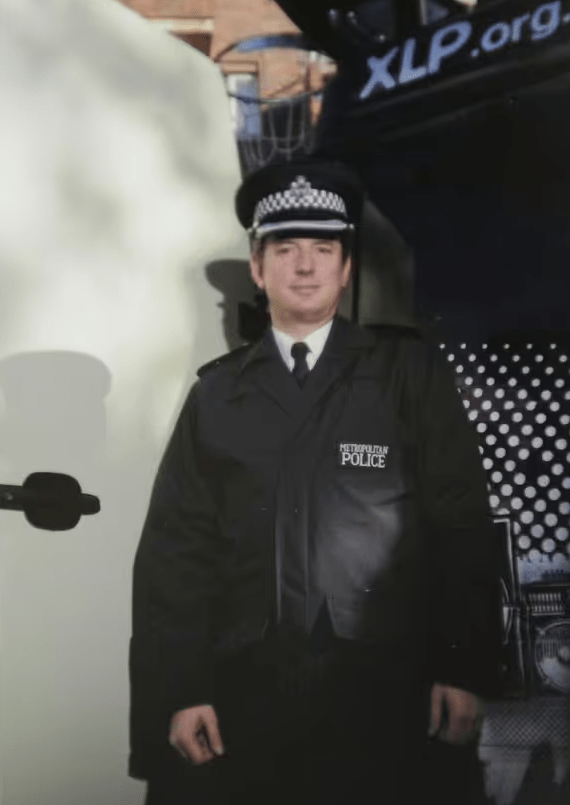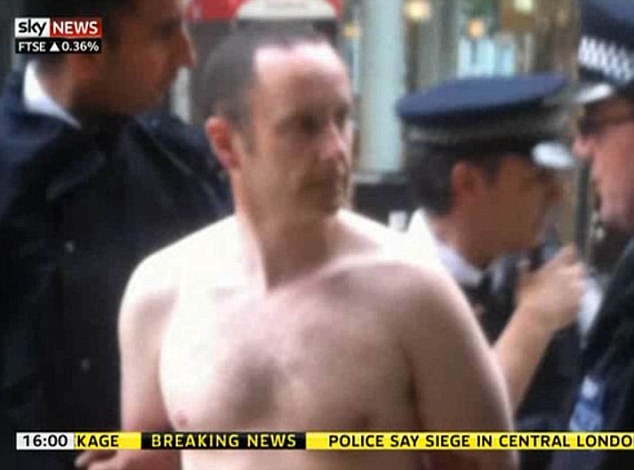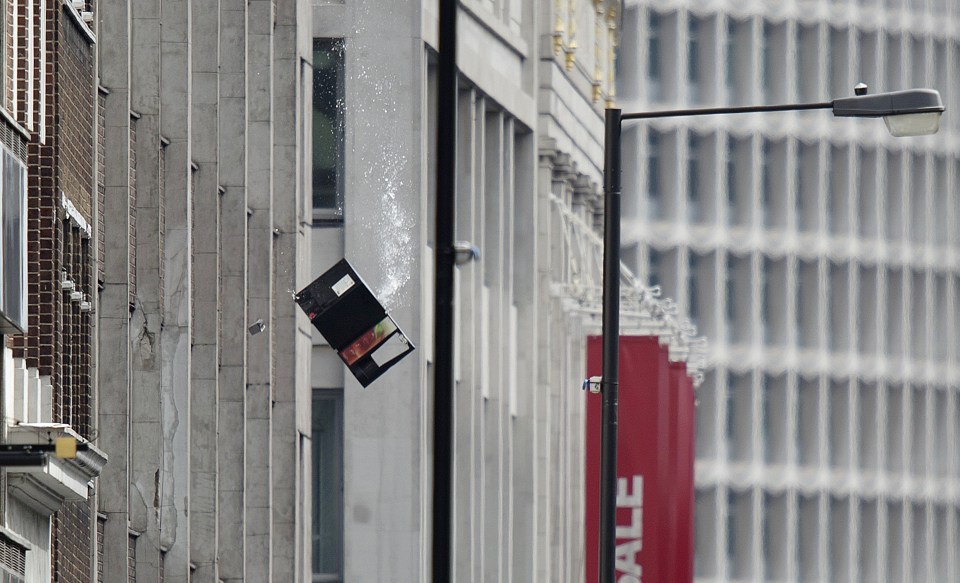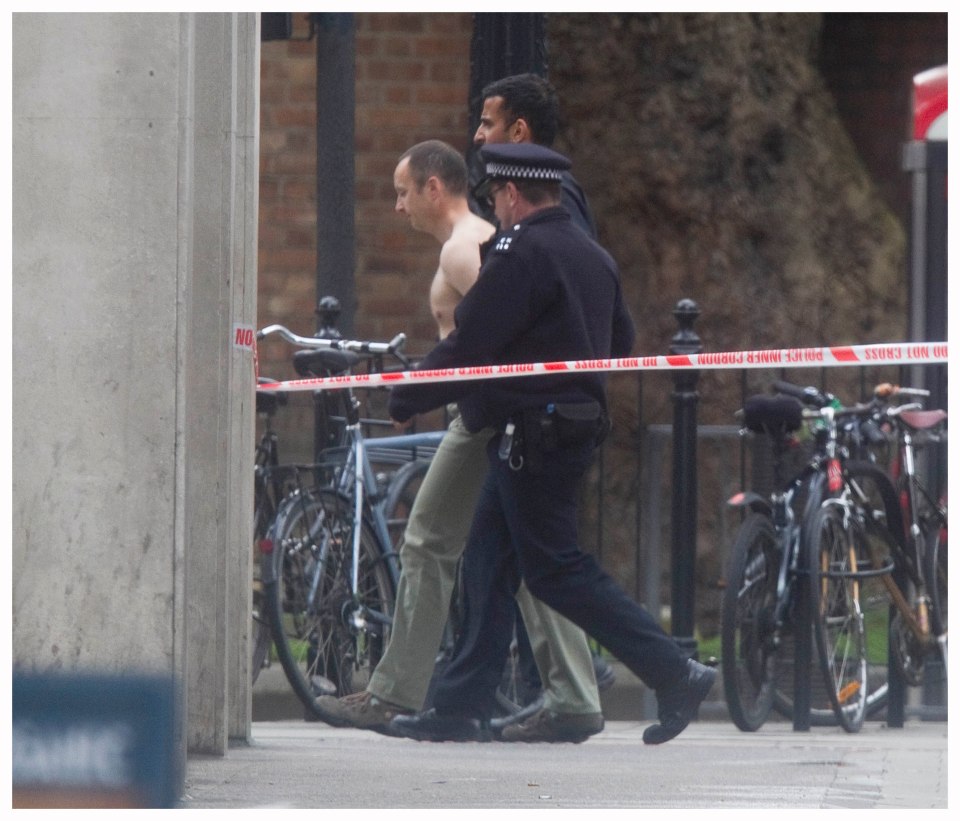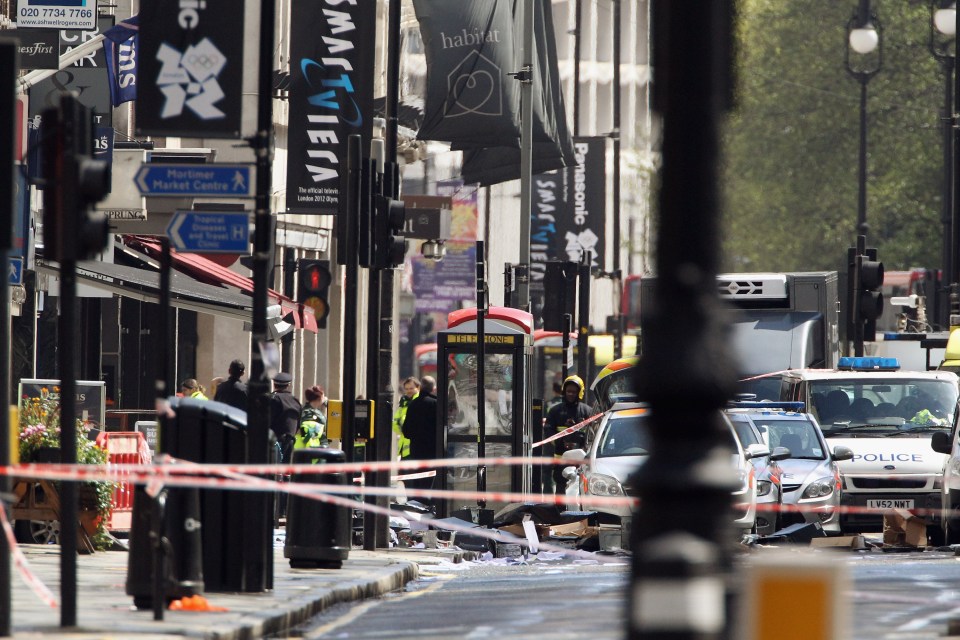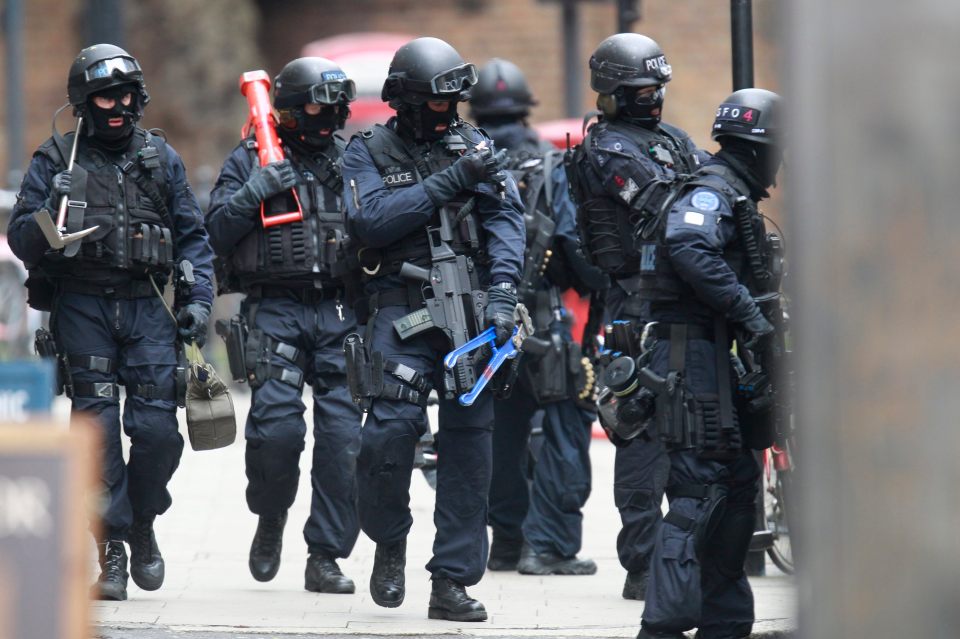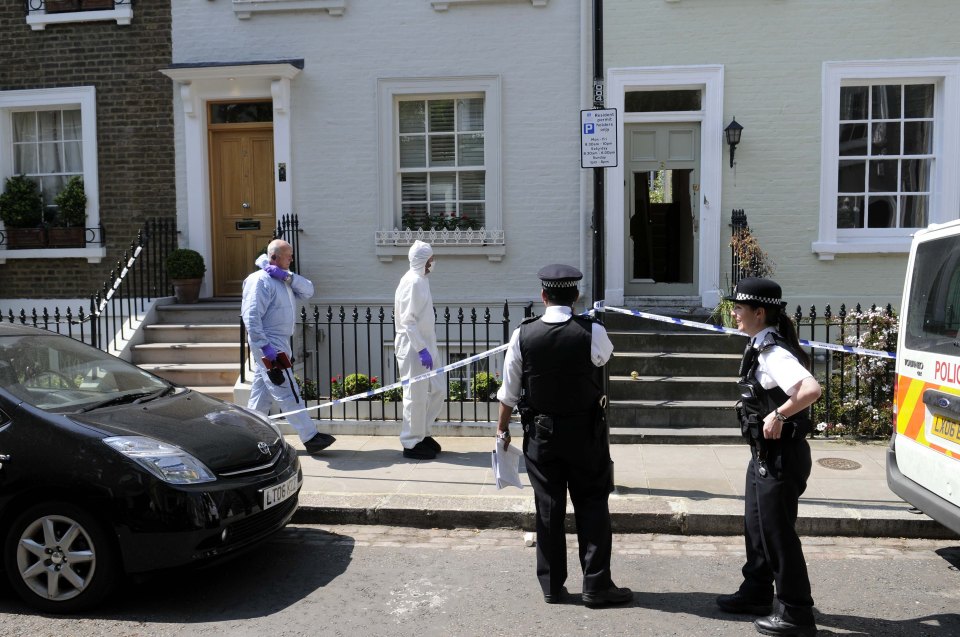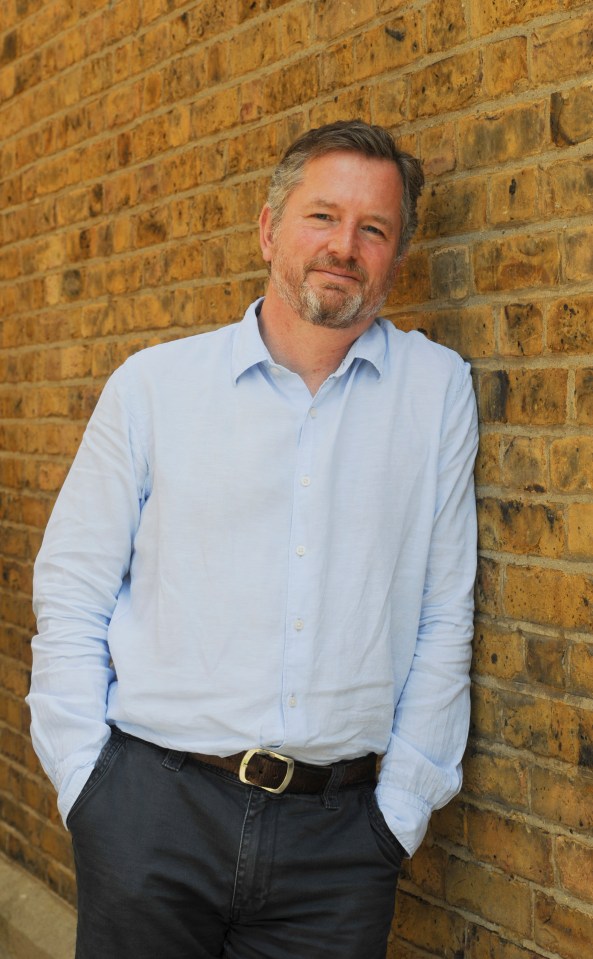AS filing cabinets, chairs and shattered glass rained from the sky, John Sutherland felt like he was in a scene from the apocalypse.
Hours earlier a man wearing a suicide vest and wielding a homemade flamethrower had stormed offices on London’s Tottenham Court Road and taken terrified hostages, including a pregnant woman.
More than 1,000 workers, shoppers and tourists were evacuated as it was feared the ‘terrorist’ had enough explosives to “bring the whole building down with everyone in it”.
Dubbed ‘the Siege of London’, it was an exceptionally-high alert situation due to it being three months before the 2012 Summer Olympics.
“It was one of the most extraordinary days of my whole career,” former Met Police Chief Superintendent John, now 55, tells us.
“I was on the scene working out what on earth to do when I heard the sound of glass shattering. I looked up and a window was being broken.
“A series of office equipment – computers, furniture, cabinets, everything – rained down onto the street below. It was genuinely apocalyptic.”
Fortunately, despite threatening to “blow everyone up”, the suspect’s bomb jacket was fake and the attacker wasn’t a terrorist but a disgruntled HGV driver.
Ex-BNP candidate Michael Green, then 48, carried out the siege to retrieve £1,000 he paid for a driving course after failing his exams twice and feeling he had “nothing left to live for”.
Green forced his hostages to lob office supplies through a window to “liquidise some assets”.
“He raided their offices as way to settle his grievances after some form of meltdown,” John says. “It could have ended terribly but we managed to get him and everyone out unscathed.”
It’s one of many colourful tales from the retired Met officer, who has mined his experiences over 26 years as a hostage and crisis negotiator to pen his Sunday Times bestselling crime thriller, The Castle.
In an exclusive interview, John explains that unlike in Hollywood movies, 90 per cent of his work was “holding out a hand” to those in crisis on “the worst day of their lives”.
He tackled dozens of threats in London and recalled the simple question he was routinely asked before being dispatched on a job: “Are you ready to save a life?”
“Whether it was 3am or in the middle of the afternoon, when you heard those words it focused the mind, because it was the only thing that mattered,” John says.
“I’ve always said the greatest duty and privilege for any police officer is to save the life of another human being, and that is the exact job of a negotiator.”
Stand-off tragedy
Despite that, it was a deeply challenging and emotionally turbulent role which is voluntary within the police force.
When on shift, negotiators are on-call 24 hours a day for that week.
Most stand-offs go on for a few hours, but John said it was not unusual for them to last two to three days.
One of the longest he was involved with was the tragic Markham Square siege in London’s Chelsea on May 6, 2008.
John was the negotiator for the five-hour stand-off which ended with wealthy divorce barrister Mark Saunders being shot dead by police.
The 32-year-old, who had represented presenter Chris Tarrant, had fired shotgun rounds from his £2.2million home during a mental health episode linked to alcohol and drugs.
Out of respect for Mark’s widow, John only says a few words about the tragedy, admitting: “It was one of the days that will stay with me for the rest of my life.”
Previously in his memoir, Blue, John mournfully explained how “a man died on my watch”, and he was “the last living soul to hold a conversation with him”.
Another harrowing encounter saw John talk down an Eastern European man who was threatening to throw himself from the 17th floor of a block of flats in Islington overlooking Arsenal’s Emirates stadium.
“He was standing on the wrong side of the window on a ledge that was six inches wide, if that,” John recalls.
“Inexplicably, the windows opened into space with no balconies.
It was one of the days that will stay with me for the rest of my life
John Sutherland
“I don’t know how long I was with him, all I know was that it was a hell of a long way down and any of the next moments could have been his last.
“It was difficult talking to him because I didn’t speak his language, but as a negotiator you try to find common humanity and understand the story of the person you’re dealing with.
“For him it was a perfect storm of being unable to get a job because he had no address, but not being able to have an address because he didn’t have a job.”
John admits he had no idea whether he would be able to coax the man back inside after he’d reached such a heartbreaking “point of desperation”, but thankfully he succeeded.
Heartbroken OAP
John tells us the key to a successful hostage negotiation is the art of listening, as was proven in an extraordinary case at an old people’s home.
Upon arriving, John was taken into a communal area where a man in his 80s sat in an armchair holding a large kitchen knife to his throat.
“There was almost a surreal nature to the scene, he clearly represented no threat to anyone else but a significant threat to himself,” John recalls.
He approached him slowly and sat in an armchair nearby, knowing he could move much faster should he need to flee, and “asked the old boy tell his story”.
It was difficult talking to him because I didn’t speak his language, but as a negotiator you try to find common humanity and understand the story of the person you’re dealing with
John Sutherland
“It transgressed, later on in life, he’d fallen in love with a fellow resident of the home but his feelings were not reciprocated,” John says.
“In fact she had been fairly unkind to him and he was an old boy with a broken heart. I listened to him and he agreed to put the knife down.”
The need to be heard and “feeling that they matter” were common themes, with John recounting many stories of people on the edge after mental health struggles.
They include a man threatening to jump into an icy cold pond on Hampstead Heath at 3am and a drug addict holding a hypodermic syringe in his neck “as a weapon”.
Life in the balance
By the time John arrived at one difficult incident there was already a line of territorial support group (TSG) officers on the scene, clad with long shields.
He recalls: “The man in his 20s was in the kitchen-diner of a flat on one side, with a knife to his throat, and I was safely behind the shields trying to engage with him.
“This poor young guy was seriously mentally ill. It was one of few times in my career where I’ve spoken to someone directly and knew mine wasn’t the only voice they were hearing.”
John remembers him “pacing continually backwards and forward, like a tiger I’d seen in London Zoo”, twisting the knife more and more.
If there’s a life hanging in the balance, you can’t wait for anyone else. You have to get on and deal with what is in front of you
John Sutherland
“One minute he was with us, partly lucid, the next he was somewhere else,” he recalls.
The man eventually surrendered after speaking to his mum on the phone.
In another incident a man with a kitchen knife was furiously “sawing backwards and forwards on his head and neck” while holding his ex-girlfriend and child hostage.
John recalls the “curtain of blood running down his face and soaking his clothes”, adding it reminded him of a scene from the Stephen King film Carrie.
Race against time
Whenever he received a dispatch call, John says there was an element of adrenaline, which was followed by exhaustion “so deep you’re almost unable to speak or walk” afterwards.
But he remained motivated by the “profound sense that today we did something good”.
He retired in February 2018, and John has now turned his hand to writing books including memoirs Blue and Crossing The Line, and fiction titles The Siege, The Fallen and his latest novel, The Castle.
“Psychologically and emotionally I draw on my lived experience,” he says. “Alex, one of the lead characters [in The Castle], is a version of me, but is a million times more interesting.
“But my deeper purpose to all of it, which I feel very passionately about having worked as a hostage and crisis negotiator, is for people to re-learn the art of listening.
“In the world at the moment it seems that most of us are shouting at each other and not listening. Listening is in danger of becoming a lost art.
“While I hope my thrillers are thrilling, subtly they have something to say about the ways that we listen and how it can do some good in the world. It can save people’s lives.”
John Sutherland’s latest novel The Castle, a Sunday Times bestseller, published by Orion, is available for £9.99 in paperback, as well as in eBook and audio formats.


